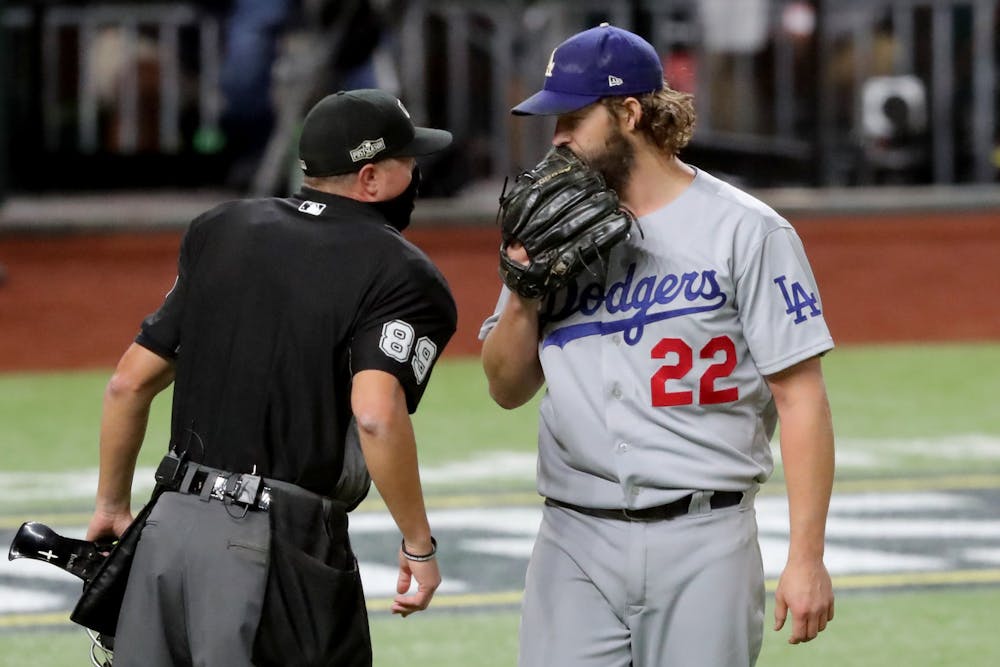One thing almost everyone who watches sports enjoys is the fights that break out among people on the field. Go watch a compilation of MLB managers throwing their hats on the ground, kicking dirt over home plate or physically stealing first base and I promise you won’t be disappointed.
What causes this childish behavior? The umpires. Look up “bad calls by MLB umpires” on YouTube — you’ll probably end up with enough videos to keep you from watching anything else ever again.
Simply put, a lot of men in the MLB like to throw hissy fits.
Umpires have been ridiculed for centuries for their blindness at home plate and around the field and honestly, they’ve deserved it. Too often I’ve found myself yelling at the TV because even I can tell from my couch a certain pitch was a strike.
So, I can’t be completely opposed to the call for robotic umpiring moving forward because I would like to keep my vocal cords functional.
The San Francisco Giants had their 2020 season end on a pitch clearly below the strike zone, but to the only person that matters, it was apparently a strike.
In the postseason, the New York Yankees and Tampa Bay Rays both faced bewildering calls by home plate umpire C.B. Bucknor, significantly affecting the game. The calls were equally unfair to both sides, but the Yankees ended up losing, and a few days later they were packing up to go home.
I’m not opposed to the Yankees losing, but the fact the umpire’s missed calls could have had a part in it creates some uncertainty; would the Yankees have won with something as simple as a different umpire? Who knows, maybe the World Series would be Yankees vs. Dodgers instead of Rays vs. Dodgers.
Well, maybe not. That’s a lot of extrapolation since baseball is so unpredictable. But the point remains— to what extent have umpires been able to effect the big picture?
The argument for robot umpires is these issues would be put in the past — there would be no more possibility of human error. It makes sense, and baseball has a great opportunity to pioneer this new wave of technology in sports.
In fact, they already have.
In 2019 the Atlantic League — an independent professional league — experimented with a program called TrackMan. The program tracks and identifies the ball’s location and relays that information to the umpire behind the plate through headphones. But there is a catch. If they disagreed, the umpire could override the program and make the call themselves.
It seems then we would be faced with robot-controlled umpires — or maybe more accurately, zombie umpires — who don’t have to think for themselves.
But if the umpires can override the robot’s calls, what is the point of the robots? Or what is the point of the human umpires? This combination seems like it’s trying to appease everyone from both camps but it really just creates more questions.
Whether you like them or not, umpires add a sense of mystery to the game. What is their strike zone going to be this game, or even for one specific inning? Are they biased? Are they going to be petty and ruin a pitcher’s no-hitter?
And most importantly, are they going to make a player so mad he gets red in the face and kicks the dirt like a 5 year old? Because that’s all we really want to see. So if robot umpires can’t make it happen, it’s going to be a no from me.



